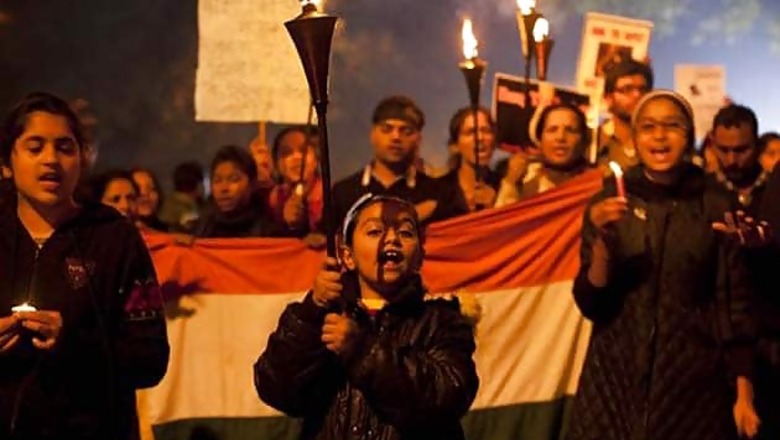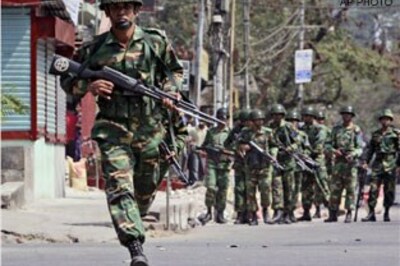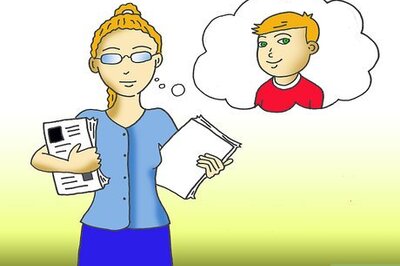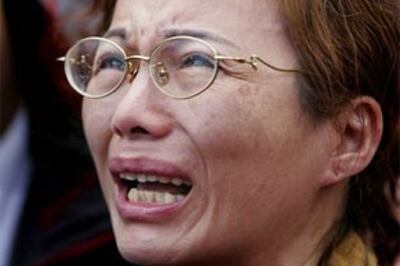
views
New Delhi: The 23-year-old paramedic student whose gangrape provoked protests and rare national debate about violence against women in India died from her injuries on Saturday, prompting promises of action from a government that has struggled to respond to public outrage. The braveheart suffered a brain injury and massive internal damage in the December 16 attack and died in hospital in Singapore where she had been taken for treatment.
Protesters rallied peacefully in the national capital and other cities across the country to keep the pressure on Prime Minister Manmohan Singh's government to get tougher on crimes against women. That was in contrast to the pitched battles protesters fought with police last weekend.
Authorities, worried about the reaction to the news of her death, deployed thousands of policemen, closed 10 metro stations and banned vehicles from some main roads in the heart of New Delhi, where demonstrators converged since the attack to demand improved women's rights.
Despite efforts to cordon off the city centre, more than 1,000 people gathered at two locations. Some protesters shouted for justice while others for the death penalty for the rapists.
Most sex crimes in India go unreported, many offenders go unpunished, and the wheels of justice turn slowly, according to social activists who say that successive governments have done little to ensure the safety of women.
Political leaders vowed steps to correct "shameful social attitudes" towards women in the world's biggest democracy.
"The need of the hour is a dispassionate debate and inquiry into the critical changes that are required in societal attitudes," Prime Minister Manmohan Singh said in a statement.
"I hope that the entire political class and civil society will set aside narrow sectional interests and agenda to help us all reach the end that we all desire - making India a demonstrably better and safer place for women to live in."
The woman, beaten, raped and thrown out of a moving bus, had been flown to Singapore in a critical condition by the Indian government on Thursday.
"She was courageous in fighting for her life for so long against the odds but the trauma to her body was too severe for her to overcome," Kelvin Loh, chief executive officer of the Mount Elizabeth Hospital in Singapore said in a statement announcing her death from multiple organ failure.
Meanwhile, hundreds of protesters took to the streets in Lucknow. In Hyderabad, a group of women marched to demand severe punishment for the rapists. Protests were also held in the cities of Chennai, Kolkata and Mumbai.
"For some reason, and I don't really know why, she got through to us," well-known columnist Nilanjana Roy wrote in a blog on Saturday.
"Our words shriveled in the face of what she'd been subjected to by the six men travelling on that bus, who spent an hour torturing and raping her, savagely beating up her male friend."
Sonia Gandhi, the powerful leader of the ruling Congress party, directly addressed the protesters in a rare broadcast on state television, saying that as a mother and a woman she understood their grievances.
"Your voice has been heard," Gandhi said. "It deepens our determination to battle the pervasive and the shameful social attitudes that allow men to rape and molest women with such impunity."




















Comments
0 comment